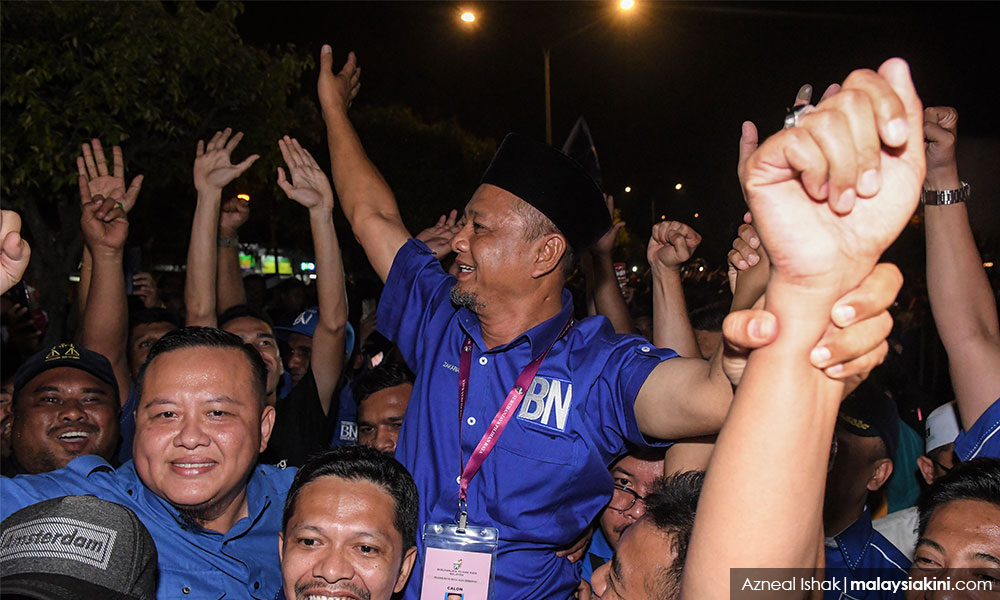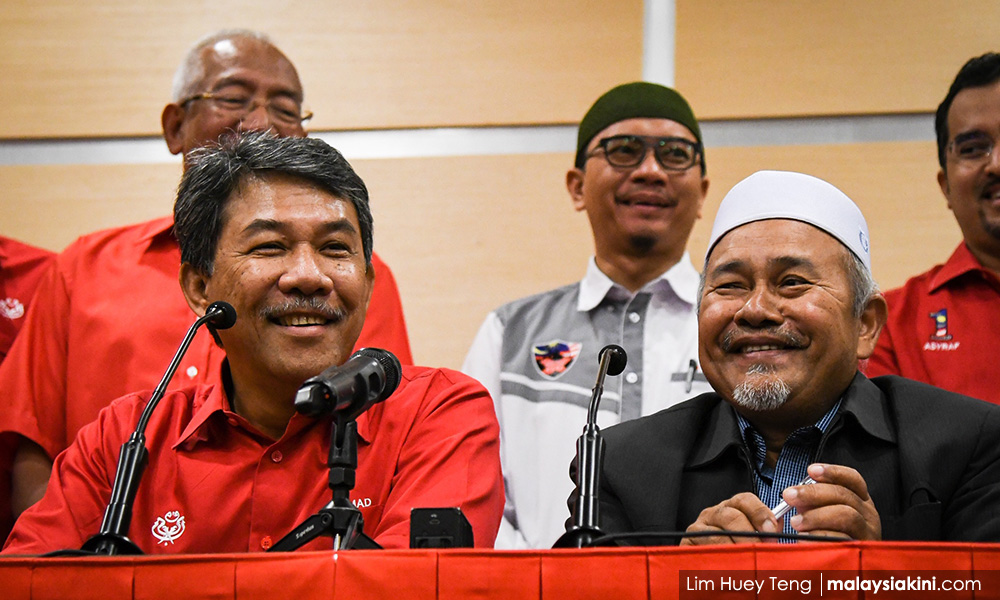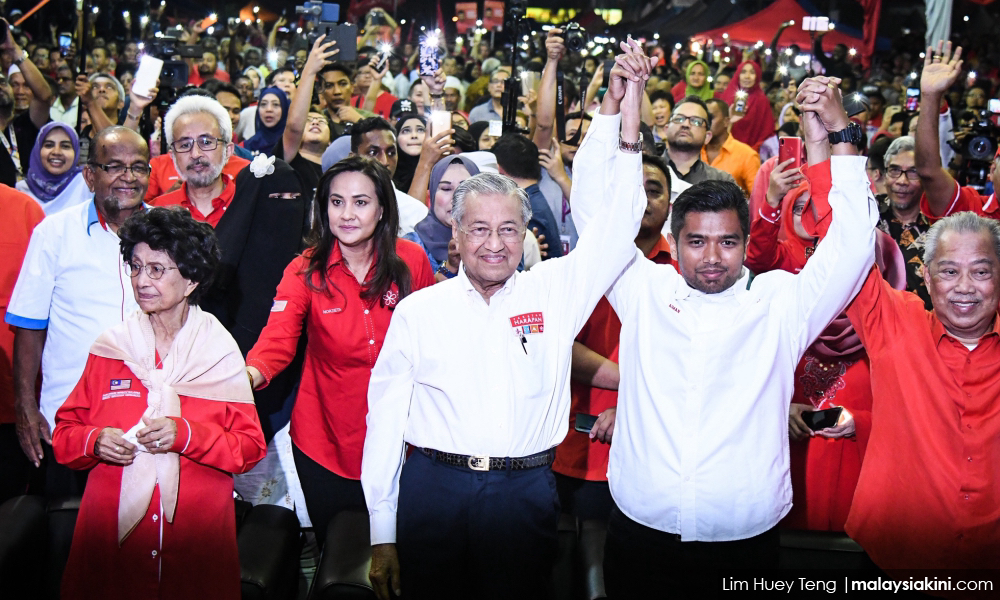
Published by Malaysiakini, images from Malaysiakini.
Yesterday, we discussed the slide back into racist politics post-Semenyih. Today we look at what we can next expect of political parties, and what we can hope of them.
As this was Bersatu’s by-election, we can start there, and perhaps with some of the more micro-strategic questions, such as why Muhammad Aiman Zainali was chosen as a candidate.
In an interview between journalist Sharaad Kuttan and Bersatu supreme council member Rais Hussin, Sharaad alludes to how Aiman’s father was a member of Pekida, and asked whether this was a factor in his choosing.
Pekida is, at best, a right-wing organisation; and at worst, the kind of organisation whose “worst” some avoid publicly describing for fear of repercussions.
In the lead up to Semenyih, Bersatu also admitted seven former Umno MPs into their fold, including the highly controversial Shabudin Yahaya.
We can arguably read these steps as Bersatu’s attempt to move to the right, in pursuit of the ever elusive “Malay votes”.
So I guess the question is: how’s that working out for Bersatu so far?
For all the verifiable data (or lack thereof) available, one could argue that had Bersatu not run this candidate or accepted those MPs, perhaps they would have gotten an even lower vote share in Semenyih.
For whatever this observer’s view is worth, I doubt that to be the case.
I have not seen much real praise for Aiman, and even those who defended him seemed to do so through gritted teeth – because they were duty bound, not out of any genuine conviction.
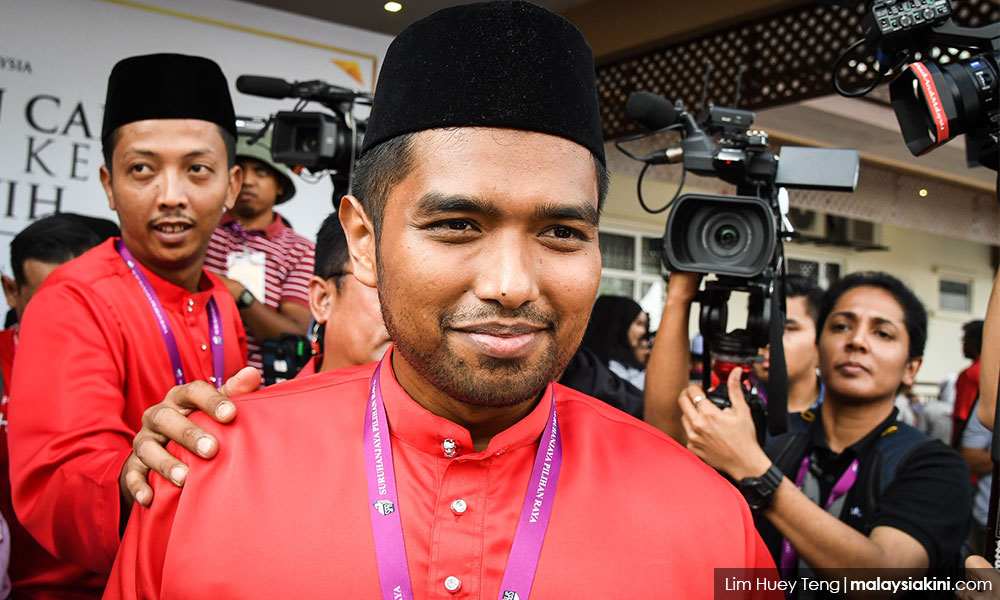
As a candidate with national attention focused on him, Aiman (photo) seemed to lack articulateness and charisma.
His somewhat single-minded pursuit to build a hospital in Semenyih was also a bit strange. Politically linked construction projects in Malaysia always raise a certain amount of suspicion.
Taking in Umno MPs weakened Harapan, and strengthened Umno
In the bigger picture, this by-election takes place as Bersatu moves towards expanding its ranks – notably by taking in ex-Umno politicians, most controversially recently in Sabah.
My previously published thoughts on this matter focused on Shabudin and defectors more generally.
The recurring question was: what value did these ex-Umno people add?
Did they bring to the table something very much irreplaceable? Did they have some special skills alien to, say, someone who has been supportive of the Pakatan Rakyat/Harapan cause all this while?
The answer is in the negative; if we were to base our analysis on by-election results alone, the movement of these individuals from Umno to Bersatu may said to have weakened Bersatu while strengthening Umno!
All these bring home the point that it is pointless for Bersatu and Harapan to try and be more Umno than Umno.
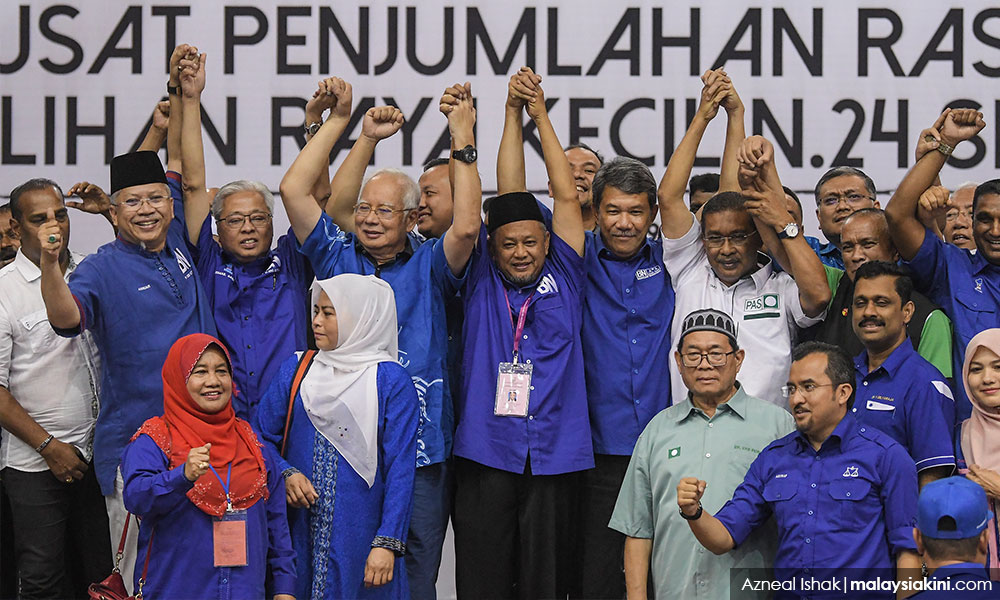
Even if one succeeded at such a misguided endeavour, the end result would surely be to meet the same fate Umno eventually did.
Just because Umno has figured out how to win some by-elections, it doesn’t mean they’ve discovered a formula to win general elections that we should foolishly follow like sheep.
Umno looking at general elections, Harapan fumbling over by-elections
Even some in Umno are smart enough to realise this.
Let us scrutinise the statements by Umno secretary-general Annuar Musa:
“The foundation of nation-building, as enshrined under the Federal Constitution, must be nurtured.
“An environment of mutual respect for the rights of all races must be protected, so that none will feel threatened, especially from among the majority,” he said.
It is clear that some in Umno are now adjusting their sights to the bigger picture. With these relatively inclusive statements, Annuar is obviously starting to think beyond by-elections and look towards how Umno might have a chance at the general elections.
This makes a sad contrast to Harapan.
Some in Umno are moving to the less racialised centre in order to win the next general elections, while Harapan is moving to the racialised right in order to win some relatively meaningless by-elections – meaningless at least in terms of administrative impact, and relative to the importance of the next general elections.
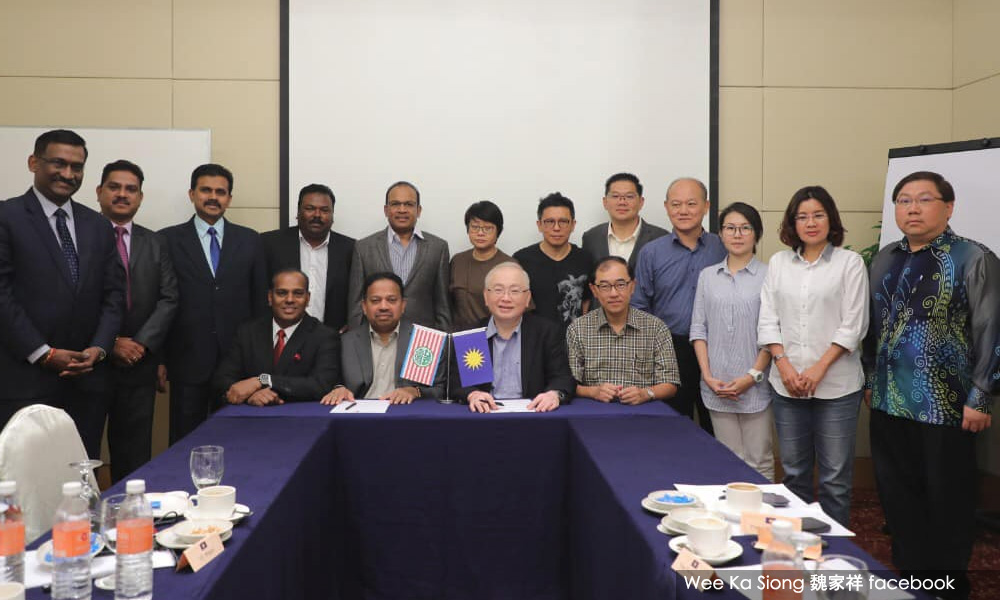
Of course, the path forward for Umno is not easy. MCA and MIC have finally taken a concrete step out of their limbo, and decided to go their own path without Umno – an interesting development to be sure.
There is some talk of MCA and MIC expelling Umno from BN. This could be very significant if viable, as it would mean Umno would no longer be able to use their trademark blue scales in elections – and this could have a significant electoral impact.
The Umno-PAS formula works well for many by-elections, but it would require a much more massive swing for that formula to work more generally even on the peninsula (especially without MCA and MIC), much less in East Malaysia.
Stop obsessing over optics, and get to work
As has become fairly common, East Malaysia is the often forgotten, underestimated piece in the puzzle. A strange state of affairs, considering they hold 56 out of Malaysia’s 222 parliamentary seats.
While peninsula politicians fret over small state by-elections, we don’t seem to be paying enough attention to either the upcoming Sarawak state elections (which should be held before 2021) or more generally, the question of how to win the hearts and minds of East Malaysians over the long term.
Indeed, with these flurry of by-elections and the constant attention of them, missing the forest for the trees is a recurring theme.
First and foremost, we should understand the difference between what national elections are about and what by-elections are about.
National elections are about deciding who will govern us. By-elections are a way to communicate whether one is satisfied or not with one’s government in a given moment in time, and to some extent an opportunity to choose a new local political leader who may be able to help with some of our problems.
If a ruling coalition gives disproportionate attention to by-elections, then its attention to national governance will suffer, affecting its chances in the next general elections.
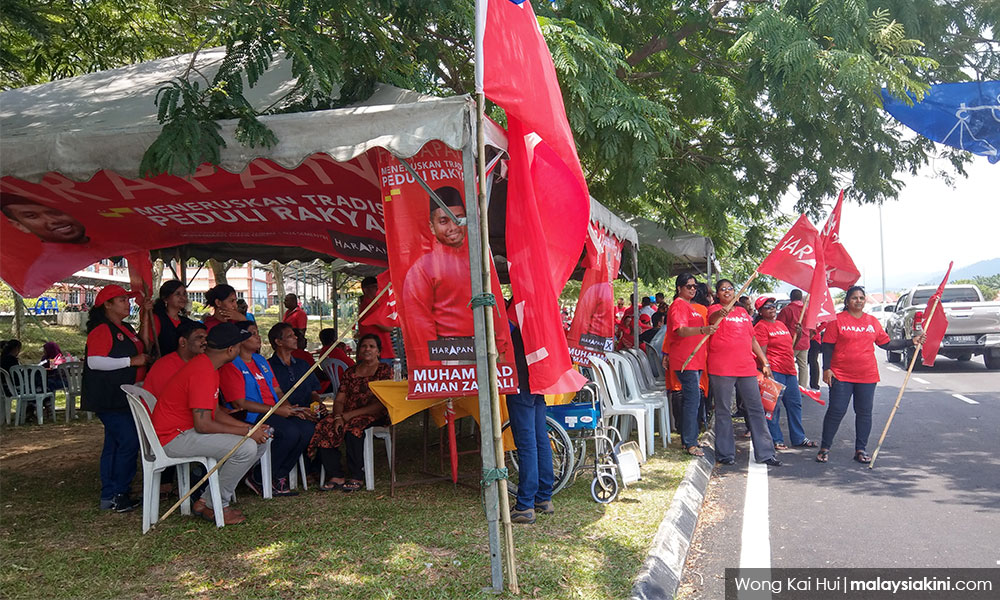
Worse yet, if they start to put too much stock into by-elections as an all-important barometer of support, they run the risk of being like someone who is so obsessed about how they look at work, they spend way too much time checking themselves again and again in the mirror, without doing any real work.
Ultimately, the quality of your work over the long run carries more weight than your appearance on any given day.
Let a stronger vision eclipse insidious ones
If Umno is accusing Harapan of failing or selling out the Malays, the correct response is not to fall over oneself trying to engage with or answer every accusation directly; the correct response is to hunker down, work, and produce results that show successful good governance that the Malays, and everyone else, can feel.
The focus should never be on neverending meek attempts to counter Umno’s version of reality.
Instead, the focus should be on strongly putting forward Harapan’s own version of reality, and backing it up with hard facts. Done right, the latter will invariably eclipse the former, as alluded to by Syahredzan Johan – the latest to join our chorus calling for a concerted, new national narrative.
Counter-intuitively, sometimes the best way to win a by-election is to stop focusing on by-elections, and start focusing on real work – drawing up a roadmap to this promised New Malaysia, making sure everyone is focused on following this roadmap, and shaping the national narrative to one where we are all in this journey together.
If the quality of this work can be improved, and a more cohesive vision for a united New Malaysia be articulated and communicated, winning by-elections could well end up being an effortless byproduct.
PART 1 – The race to racism post-Semenyih
Nathaniel Tan is Director of Media & Communications at EMIR Research, an independent think-tank focused on strategic policy recommendations based upon rigorous research.
